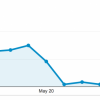Google Panda was one of the most controversial algorithm updates from Google, but with time, it helped a lot to remove low-quality websites from search engine and improved the quality of the web.
Though for many webmasters, Google Panda updates are still a headache and at unknowingly many good websites lost their search engine ranking due to Panda penalty.
Panda’s Impact on Content
Rethinking thin content and Google Panda
Recently Gary Illyes from Google said that he does not recommend removing content as a way to clean up from Panda. And while some SEOs do not agree with this (some quite vocally), it does make perfect sense. Removing content because you feel it could be negatively impacting the site from a Panda perspective could actually be making a site’s search problems even larger.
Removing the wrong content
The biggest issue is that webmasters could be removing content that is fine in Google’s eyes, and is content that is ranking and driving traffic. Unless you are going through every piece of content and checking for Google referrals, you could be removing content that is performing well, but it might be long tail enough that it isn’t as noticeable.
Using Search Analytics in Google Search Console is a good way to determine what pages are getting traffic and identify potential candidates for content that needs improving due to zero Google referral traffic.
A Google spokesperson also took it a step further and suggested using it also to identify pages where the search query isn’t quite matching the delivered content. “If you believe your site is affected by the Panda algorithm, in Search Console’s Search Analytics feature you can identify the queries which lead to pages that provide overly vague information, or don’t seem to satisfy the user need for a query.”
Added up, removing the wrong content can have a significant negative impact, both because you are removing content that Google sees as quality and because you are also losing the traffic Google was sending to those pages. And depending on the number of pages removed, it can seem that the site is continuing to lose traffic due to Panda or other algo changes when in reality it is the removal of those pages that caused it.
There is also the possibility that another search engine might think the content you are removing is awesome, and you could lose that traffic as well. Often when people look at search engine referrals, they only look at Google because of the market share, but especially if some of the site is impacted by Panda, that search share can look quite a bit different for some sites.

Do all pages need to be high quality for the site to be high quality?
While a site can still rank on good quality pages despite some pages being impacted by Panda, likewise, a site can be considered great quality even if there are some low quality pages. Instead, it wants to see a site with the vast majority of pages classified as high quality.
A Google spokesperson told us, “In general high quality sites provide great content for users on the vast majority of their pages.”
So a site with a handful of low quality pages can still be considered an overall great site, so while it would always be recommended to improve low quality pages, there isn’t a major concern that webmasters should worry about if a few pages are lower quality than the rest. That said, webmasters would need to ensure that it really is only a handful of pages, and not a majority of them.
Similar content
Particularly for “how to” sites, you might want to take a closer look at your content, particularly if you have many pieces of content that are very similar. Often when there is an abundance of articles on an almost identical topic, the quality of that content will probably greatly vary.
For example, eHow has over 100 articles (and probably more, I stopped counting at 100) on how to unclog a toilet. Unless a website is trying to be the most amazing uncloggingtoilets.com website of all time, then it probably makes sense to see how some of those pages could be combined – especially since it is very unlikely Google is sending traffic to all 100 pages.
Check your Google referrals to those pages and see what is getting traffic from Google, because that will be a signal that Google thinks those pages are good enough to rank and send traffic to. But take a close look at the rest of those pages that have zero traffic from Google.
If you have a lot of similar content and are also having Panda issues, it makes sense to combine some of those articles that aren’t ranking or getting traffic from Google to raise the quality, then redirect the old URLs.
Duplicate content
Many people had assumed that the duplicate content filter (yes, it is just a filter, not a penalty) was a core part of Panda, but it is not. John Mueller confirmed last month that Panda and duplicate content are “two separate and independent things.”
Of course, regardless of whether it is a Panda signal or not, it is best practice to clean up those duplicates, especially since dupes on a massive scale can result in a manual action being taken on the site.
Even from an SEO perspective, when Mueller was answering questions about a Panda-hit site, and one of the issues raised by the site owner was the duplicates on the site, he said that is a low priority compared to ensuring the content on the site is the best of its kind.
If you were to ask me where to prioritize my time for this website, I would put cleaning up “technical duplication” like that somewhere in the sidebar or even quite low on the list. Sure, it’s worth doing, but it’s not going to be the critical factor. Our algorithms are pretty good at dealing with duplication within a website. If you are trying to sell a car, then washing it is a good idea — but if the car has serious mechanical issues, then washing it isn’t going to get it sold.
In other words, internal duplication isn’t a factor, especially in the world of unsavvy WordPress site owners accidently duplicating many pages. It is just a minor piece in the algo puzzle.
In fact, the most comforting take away from Google’s decision to make Panda a core part of the search engine algorithm is that there are no major changes to expect in the near future. So if you’re aware of the Panda guidelines and what is expected of you, it’s very unlikely that you’ll run into new problems or issues in the future.
Obviously, this is not to say that you have to relax on your laurels and forget about these guidelines and how they can adversely affect your ranking and indexing. You should keep in mind that the Panda algorithm updates are very active and you can’t be very sure about what it will bring in the future.
Nonetheless, you can stay on the right side of Panda by doing the following:
- Enforce quality content – Do not create content that may violate Panda’s content guidelines. You should avoid duplication, low-quality content, irrelevant content, thin content, auto-generated content, redundant content and content with grammatical errors and poor spelling. You should therefore focus on creating unique and high-quality content.
- Promote positive user experience – Avoid poor user experience like plague because they can give Google cues that something is wrong with your site. You should avoid things such as poor navigation, slow site speed, excessive ads, 404 errors, excessive links, hidden text and cloaking, keyword stuffing and such like things.
- Promote page engagement – Even though Panda might not be vigorous enough to examine every part of your content for quality, Google can use what they refer to as “user signals” to take issues with what visitors to your website say. For instance, you may be in trouble if visitors do not spend time on your website or if your website’s pages have excessively high bounce rates.
- Build trust and confidence – Trustworthiness, integrity and authority are important factors that Google look at. Therefore, your information should be genuine and trustworthy. You should ensure that your website is secure by incorporating HTTPS encryption, an appropriate privacy policy, genuine contact information, terms and conditions and ensuring that your site has no excessive ads.
Read more Tips to recover from a Google Panda Penalty
_______________________________________________________________________________
For more details about our seo service packages, pls contact us
BIGBIGSEO Team
Email: bigbigseo@gmail.com
Skype: bigbigseo
https://www.facebook.com/bigbigseo
Thank you!




